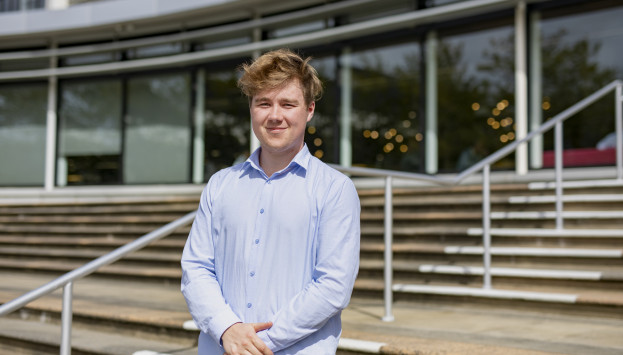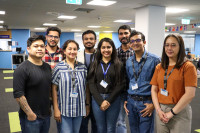From making go-karts to fixing sail boats, Jarvis Cross has always been interested in solving mechanical issues.
Now, the Otago Polytechnic | Te Pūkenga Mechanical Engineering graduate is turning his technical and theoretical abilities to even bigger projects.
Having completed a Bachelor of Engineering (Mechanical) in December, Jarvis stepped straight into a full-time job in the Dunedin branch of international company Stantec, where he works in the firm’s water division.
As a graduate mechanical engineer mentored by more senior experts, Jarvis is relishing both the variety and scale of the projects in which he is involved.
“My job includes helping with water treatment plant projects, but also still water and drinking water challenges, as well as hydro-electric,” Jarvis explains.
Mechanical engineering is a broad and deep field. It involves physics, materials-based science and mathematics, the design and development of various mechanical systems, along with practical skills and knowledge that can be applied to range of scenarios, from relatively small machines to large and complex industrial systems and infrastructure.
Jarvis says his three years of study enabled him to put theory to the test via a range of real-world, project-based assignments and evaluations.
“That practical stuff we did in labs and in the workshop, being challenged to solve issues ‘on the fly’ and actually resolving things in person rather than on paper . . . that project-based learning was really helpful.
“It was also important in that it helped you learn what can’t be done. For example, you may be able to design something to three decimal places on a computer, but you might not actually be able to complete such a design.”
The progression from schoolboy tinkerer, to tertiary student, to a job in industry has been “fairly natural”, Jarvis says.
“I’ve had an interest in such things from a young age. My dad's a builder, so I'd help him a lot at weekends. In high school, we started making go-karts. I also did sailing, which meant I’d be fixing my boat every weekend.”
Communication skills and a worth ethic go a long way, too, Jarvis has discovered.
“Communication is really important. So is time management.”
As for advice for others contemplating studying mechanical engineering, Jarvis offers the following:
“Seize your opportunities. Do some internships. Oh, and get involved with Engineering New Zealand and try and go to every event they do.
“Networking is very important. Yes, there are lots of jobs in mechanical engineering, but sometimes there are opportunities that aren’t even advertised.”
Published on 6 Mar 2023
Orderdate: 6 Mar 2023
Expiry: 6 Mar 2025






